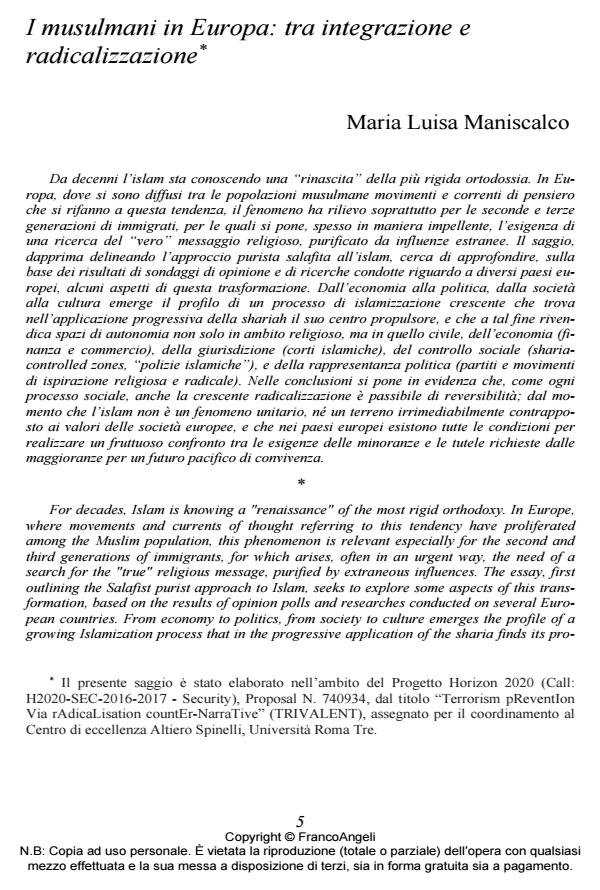I musulmani in Europa: tra integrazione e radicalizzazione
Journal title CITTADINANZA EUROPEA (LA)
Author/s Maria Luisa Maniscalco
Publishing Year 2017 Issue 2017/1
Language Italian Pages 33 P. 5-37 File size 315 KB
DOI 10.3280/CEU2017-001001
DOI is like a bar code for intellectual property: to have more infomation
click here
Below, you can see the article first page
If you want to buy this article in PDF format, you can do it, following the instructions to buy download credits

FrancoAngeli is member of Publishers International Linking Association, Inc (PILA), a not-for-profit association which run the CrossRef service enabling links to and from online scholarly content.
For decades, Islam is knowing a "renaissance" of the most rigid orthodoxy. In Europe, where movements and currents of thought referring to this tendency have proliferated among the Muslim population, this phenomenon is relevant especially for the second and third generations of immigrants, for which arises, often in an urgent way, the need of a search for the "true" religious message, purified by extraneous influences. The essay, first outlining the Salafist purist approach to Islam, seeks to explore some aspects of this transformation, based on the results of opinion polls and researches conducted on several European countries. From economy to politics, from society to culture emerges the profile of a growing Islamization process that in the progressive application of the sharia finds its propulsive center, and that for this reason is demanding spaces for autonomy not only in the religious field, but in the civil sector, with regard to economy (finance and trade), jurisdiction (Islamic courts), social control (sharia-controlled zones, "Islamic polices"), and political agency (through parties and movements of religious and radical inspiration). In conclusions it is emphasized that, as any social process, even the growing radicalization is liable to reversibility; since Islam is not a unitary phenomenon, nor a ground irreparably opposed to the values of European societies, and that in European countries there are all the conditions for a fruitful dialogue between the needs of minorities and the protections required by the majorities for a peaceful future of coexistence.
Maria Luisa Maniscalco, I musulmani in Europa: tra integrazione e radicalizzazione in "CITTADINANZA EUROPEA (LA)" 1/2017, pp 5-37, DOI: 10.3280/CEU2017-001001